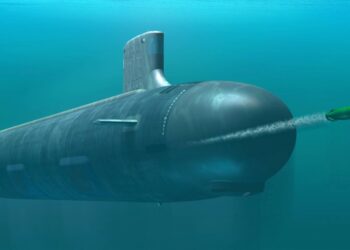There are 21 countries in the world that have no active military forces. These nations vary in size, history, and reasons behind choosing to not have a standing army. Maintaining an army is expensive in today’s world and, for many of these countries, forgoing a military force can provide funds for other public services. The term ‘country’ here means sovereign states and not dependencies, whose defence is the responsibility of another country or an army alternative.
The term ‘military forces’ refers to any government-sponsored defence used to further the domestic and foreign policies of their respective government. Some of the countries listed, have no standing armies but still have a non-police military force. Many of the twenty-one countries listed here typically have had a long-standing agreement with a former occupying country.
The remaining countries are responsible for their own defence, and operate either without any armed forces, or with limited armed forces. Some of the countries, underwent a process of demilitarization. Other countries were formed without armed forces, the primary reason being that they were, or still are, under protection from another nation at their point of independence.
Here are the countries without military forces.
1. Andorra
Andorra has no standing army but signed treaties with Spain and France for its protection. Its small volunteer army is purely ceremonial in function. The paramilitary GIPA (trained in counter-terrorism and hostage management) is part of the national police. Defence assistance is provided by France and Spain under an informal agreement between the three countries.
2. Costa Rica
Article 12 of the Constitution of Costa Rica has forbidden a standing military since 1949. It does have the Public Force with limited military capacities, whose main role includes law enforcement, internal security and command of such entities like the Air Vigilance Service and the Costa Rican Civil Guard. The Inter-American Court of Human Rights and the United Nations’ University for Peace are headquartered in Costa Rica.
3. Dominica
Dominica has not had a standing army since 1981. Defence is the responsibility of the Regional Security System.
4. Federated States of Micronesia
Since Federated States of Micronesia’s foundation no military has been formed. The only forces permitted are the police, which maintain a Maritime Surveillance Unit for internal security. The Maritime Surveillance is equipped with small arms, and maintains three Pacific-class patrol boats, FSS Palikir, FSS Micronesia, and FSS Independence. Defence is the responsibility of the United States under the Compact of Free Association.
5. Grenada
Grenada has not had a standing army since the 1983 disbandment of the People’s Revolutionary Army, after the US-led invasion. The Royal Grenada Police Force maintains a paramilitary special service unit for internal security purposes. Defence is the responsibility of the Regional Security System.
6. Iceland
Iceland has not had a standing army since 1869, but is an active member of NATO. U.S. provides Iceland with defence, but without permanently basing forces in the country. Even though Iceland does not have a standing army, it still maintains a military expeditionary peacekeeping force, an air defence system, an extensive militarized coast guard, a police service, and a tactical police force. There are also agreements regarding military and other security operations with Norway, Denmark, and other NATO countries.
7. Kiribati
Under the Constitution of Kiribati, the only forces permitted are the police, which includes a Maritime Surveillance Unit for internal security. The Maritime Surveillance is equipped with small arms, and maintains one Pacific-class patrol boat, the Teanoai. Defence assistance is provided by Australia and New Zealand under an informal agreement between the three countries.
8. Liechtenstein
Liechtenstein abolished its army in 1868 because it was deemed too costly. An army is only permitted in times of war, but that situation has never occurred. Liechtenstein maintains a police force with a police tactical unit, equipped with small arms to carry out internal security duties. Defence assistance is provided by Austria and Switzerland under an informal agreement among the three countries.
9. Marshall Islands
Since Marshall Islands’s foundation the only forces permitted are the police, which includes a Maritime Surveillance Unit for internal security. The Maritime Surveillance Unit is equipped with small arms, and maintains one Pacific-class patrol boat, the Lomor. Under the Compact of Free Association, defense is the responsibility of the United States.
10. Mauritius
Mauritius has not had a standing army since 1968. All military, police, and security functions are carried out by 10,000 active duty personnel under the command of the Commissioner of Police. The 8,000-member National Police Force is responsible for domestic law enforcement. There is also a 1,500-member Special Mobile Force, and a 500-member National Coast Guard, which are both considered paramilitary units. Both units are equipped with small arms.
11. Monaco
Monaco renounced its general military investment in the 17th century because the advancement in artillery technology had rendered it defenceless, but still self-identifies as having limited military forces. Although defence is the responsibility of France, two small military units are maintained; one primarily protects the Prince and judiciary, while the other is responsible for civil defence and fire fighting. Both units are well-trained and equipped with small arms. In addition to the military, an armed national police force is maintained for internal security purposes.
12. Nauru
Australia is responsible for Nauru’s defence under an informal agreement between the two countries. However, there is a relatively large armed police force, and an auxiliary police force for internal security.
13. Palau
Since Palau’s foundation the only forces permitted are the police, which includes a 30-person Maritime Surveillance Unit for internal security. The Maritime Surveillance is equipped with small arms, and maintains one Pacific-class patrol boat, Remeliik, and one Japanese granted patrol boat, Kedam. Defence assistance is provided by the United States under the Compact of Free Association.
14. Panama
Panama abolished its army in 1990, which was confirmed by a unanimous parliamentary vote for constitutional change in 1994. The Panamanian Public Forces include the National Police, National Borders Service, National Aeronaval Service, and Institutional Protection Service, which have some warfare capabilities.
15. Saint Lucia
The Royal Saint Lucia Police maintain two small paramilitary forces consisting of 116 people, the Special Service Unit, and the Coast Guard, both units are responsible for internal security. Defence is the responsibility of Regional Security System.
16. Saint Vincent and the Grenadines
The Royal Saint Vincent and the Grenadines Police Force maintain two small paramilitary forces consisting of 94 people, called the Special Service Unit, and the Coast Guard, both units are responsible for internal security purposes. Defence is the responsibility of Regional Security System.
17. Samoa
Since Samoa’s foundation no military has been formed; however, there is a small police force, and a Maritime Surveillance Unit for internal security. The Maritime Surveillance Unit is equipped with small arms, and maintains one Pacific-class patrol boat, the Nafanua. In accordance to a 1962 Treaty of Friendship, New Zealand is responsible for defence.
18. Solomon Islands
Solomon Islands maintained a paramilitary force until a heavy ethnic conflict, in which Australia, New Zealand and other Pacific countries intervened to restore law and order. Since then no military has been maintained, however, there is a relatively large police force, and a Maritime Surveillance Unit for internal security. The Maritime Surveillance Unit is equipped with small arms, and maintains two Pacific-class patrol boats, the Auki and the Lata.
19. Tuvalu
Since Tuvalu’s foundation no military has been formed; however, there is a small police force, and a Maritime Surveillance Unit for internal security. The Maritime Surveillance Unit is equipped with small arms, and maintains one Pacific-class patrol boat, the Te Mataili.
20. Vanuatu
The Vanuatu Police Force maintain a paramilitary force, called the Vanuatu Mobile Force for internal security purposes. The Vanuatu Mobile Force is manned by almost 300 men and women, who are well-equipped with small arms.
21. Vatican City
Vatican City maintains a Gendarmerie Corps for internal policing. The Pontifical Swiss Guard is an armed unit charged with protecting the Pope, although it is officially under the authority of the Holy See, not the Vatican City State. There is no defence treaty with Italy, as it would violate the Vatican’s neutrality, but informally the Italian Armed Forces protect Vatican City. The Palatine Guard and Noble Guard were abolished in 1970.

































































































































































































